by Güley Bor
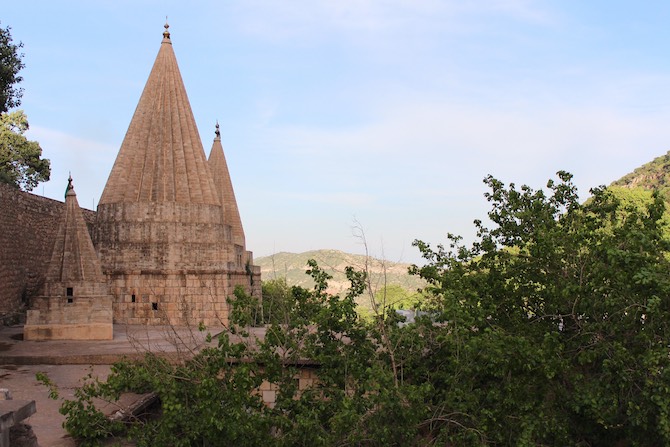
‘For many survivors, fear of rape is swiftly followed by fear of rejection, with communities being more likely to punish the victim than the perpetrator. In addition to the debilitating physical and psychological trauma, the stigma that follows in the wake of rape can have lasting, potentially lethal, repercussions, including: “honour killings”, suicide, diseases, HIV and sexually transmitted infections going untreated, traumatic fistula, unsafe abortion, maternal mortality, poverty and high-risk survival behaviour.’ – Report of the Secretary General on Conflict-Related Sexual Violence, 16 April 2018
Stigma attached to conflict-related sexual violence (CRSV) is increasingly being addressed as part of the efforts to prevent CRSV. The UK Government’s Preventing Sexual Violence in Conflict Initiative (PSVI) has adopted a set of Principles for Global Action on Preventing and Addressing Stigma Associated with Conflict-Related Sexual Violence in 2017, which serves as a valuable tool for policy-makers, civil society activists and researchers alike. The Principles define stigma associated to CRSV as ‘a social process that leads to the marginalisation of individuals or groups’, and identify two dimensions of stigma: external, imposed on survivors by others, and internal, caused by internalisation of social norms. External stigma operates, among others, on a community level; community members and families may be determinative in preventing, producing or exacerbating stigma.
In Iraq, the self-declared Islamic State (IS) kidnapped 6,417 Yazidis,[1] forcing women and girls to sexual slavery, among other gross human rights violations. This initially caused rejection of many Yazidi women by their families, due to patriarchal underpinnings of Yazidi culture, religious doctrine that prohibits sexual contact with non-Yazidi, and reports of forced conversions. Nonetheless, the community approach mostly shifted when the spiritual leader of the Yazidi, Baba Sheikh, issued a religious declaration in September 2014 stating that survivors remain pure Yazidis.[2] This strategic move, which may be characterised as a form of genocide resistance,[3] led to the acceptance of survivors back into the community, and manifested itself in a ‘re-baptism’ ceremony where survivors would be accepted by religious leaders to Lalesh, the Yazidi holy site, and baptised once again as per religious rituals that symbolise their re-admittance into the religion.
Indeed, Yazidi survivors I interviewed as part of my research under the Conflict Research Programme (CRP) mentioned how supportive their families, the community, and religious leaders were. Not only survivors and women, but also Yazidi men have started to openly address CRSV. Zeynep Kaya of the CRP notes how this has led to a positive shift in the attitude of Yazidi men towards women in general, with women and girls increasingly provided with platforms to speak and encouraged to study to secure their futures.
Still, the Yazidi community hasn’t yet entirely overcome stigma. Survivors I interviewed also remarked how some members of the community consider them to have lost their dignity. In one of the focus group discussions, survivors voiced their mistreatment by their community as one of the main issues they face; one respondent aptly stated, ‘They accept us, but they don’t respect us.’ These findings are consistent with a study conducted in 2017 on perceived social rejection among female Yazidi survivors of sexual slavery, which showed that 44.6 percent of survivors felt extremely excluded by community members. This stigma may have lasting impact on survivors, including exacerbating mental health issues.
Survivors who wish to keep their children born of rape are in much worse condition, as they are forced to choose between disowning their children or being socially shunned by their communities. A ground-breaking declaration by the Yazidi Supreme Spiritual Council accepting both survivors and their children to the community was issued on 24 April 2019. However, that decision was reversed three days later following outcry from the community. Several Yazidi activists denounced this reversal, with renowned Yazidi NGO Free Yezidi Foundation urging that this decision be viewed ‘through a wider, gendered lens,’ highlighting gender discrimination within the Yazidi community. The responsibility should not rest solely on the shoulders of the Yazidi community; Iraqi legislators must amend laws that register these children as Muslims as soon as possible.
The level of social rejection Yazidi survivors face does not appear to impede their access to services. Shi’a Turkmen survivors, on the other hand, face a level of social rejection which not only re-traumatises them but also impedes their access to basic services, as I found out while conducting fieldwork in Tel Afar.
There is no official record of how many Shi’a Turkmen women have been kidnapped by IS. Local activists I interviewed in Tel Afar estimate the total number to be 450, with only 30–35 returnees.[4] It is possible that some of these women have been killed, as killings were widespread during IS’s attacks against the Shi’a. However, the community, tribes, and families that reject survivors and prevent CRSV from being discussed could also be discouraging women from escaping and returning to their community out of fear and shame.
Basic services in Tel Afar are severely inadequate (a point on which I will expand in my forthcoming CRP paper), contributing to the reluctance of survivors to come forward. Fear of being singled out or exposed prevents survivors from accessing even those inadequate services. Not a single survivor had visited the general hospital in Tel Afar by November 2018, meaning that they most likely hadn’t been tested for STIs/STDs, or treated for possible physical impacts of sexual violence. An OBGYN in Tel Afar stated that she had heard of one case only, when the survivor’s male relative visited her private clinic, asking whether she could perform surgery on the survivor to ‘restore her virginity’ (a practice that was reported in the early aftermath of the Yazidi Genocide as well). There are no state-provided mental health services, while the few organisations that operate in Tel Afar voice their difficulty in accessing survivors to attend psychosocial support programs.
Stigma also causes severe mobility restriction for Shi’a Turkmen survivors. One survivor indicated that she doesn’t leave the house because the tribes mistreat survivors. Another mentioned how her relatives stopped her from attending a vocational training by an organisation because the neighbours were gossiping about her leaving the house.
Iraq’s Diwan of Sunni Endowments issued a religious declaration in 2017, stating that survivors of rape cannot be considered sinful and urging communities and families to support the survivors and refrain from blaming them. Local activists I interviewed mentioned efforts by Tel Afari youth and prominent members of the Shi’a Turkmen community to advocate before the office of Shi’i cleric Grand Ayatollah Ali al-Sistani for a similar declaration, although these attempts were unsuccessful. Still, reports on a meeting between Ayatollah Sistani and Special Adviser of the United Nations Investigative Team to Promote Accountability for Crimes Committed by Da’esh/ISIL (UNITAD) Karim Khan are promising, especially since the statement released by Ayatollah Sistani asks UNITAD to focus on crimes against minorities including Turkmen in Tel Afar by explicitly mentioning sexual violence.
Coordinated efforts between the state, communities, and civil society that are crucially community-specific and survivor-centric are required to effectively address stigma arising from CRSV. The Iraq Women, Peace and Security National Action Plan (NAP) 2014–2018 acknowledged stigma and referred to reintegration of survivors as part of the broader agenda to address CRSV, although no data was reported on the level of reintegration. The Emergency NAP adopted in 2015 to address the IS conflict specifically provided for ‘dialogue sessions for religious imams from different denominations and religions’ on reintegration of CRSV survivors, yet no data on implementation is available. Tackling stigma arising from CRSV inevitably includes addressing gender inequality, since stigma is both caused by and reproduces unequal gender norms. Measures to that effect can also be included in a reparation program that includes rehabilitation and guarantees of non-repetition.
The experiences of Yazidi and Shi’a Turkmen women differ in terms of community-level stigma, although they both have roots in gender inequality. Iraqi feminist Yanar Mohammed states, ‘It’s harder to blame a woman for having been raped when it’s happening to so many.’ Hopefully, efforts to address stigma arising from CRSV in Iraq will also contribute to eliminating broader stigma surrounding sexual and gender-based violence, complementing the struggle against gender discrimination.
[1] According to the data obtained from the Kurdistan Regional Government’s Office of the Kidnapped and Rescue Affairs on 13 December 2018.
[2] Baba Sheikh, ‘Yezidian Reference Religious’, 6 September 2014.
[3] Personal correspondence with Sara Birjandian, 26 February 2019.
[4] As of 20 November 2018.
This blogpost is part of the LSE research project Reforming Legal Responses to Conflict-Related Sexual Violence in Iraq and the Kurdistan Region by Güley Bor, examining how laws in Iraq could be reformed to provide better response to female survivors of conflict-related sexual violence. This project forms part of the Conflict Research Small Grants Programme, funded by the UK Department for International Development to provide research and policy advice on how the risk and impact of violent conflict might be more effectively reduced through development and governance interventions.
Many thanks to Dr. Ali al-Bayati, Shanay Karanaz and Jaafar al-Talafary of the Turkmen Rescue Foundation, without whose support the research in Tel Afar wouldn’t be possible.



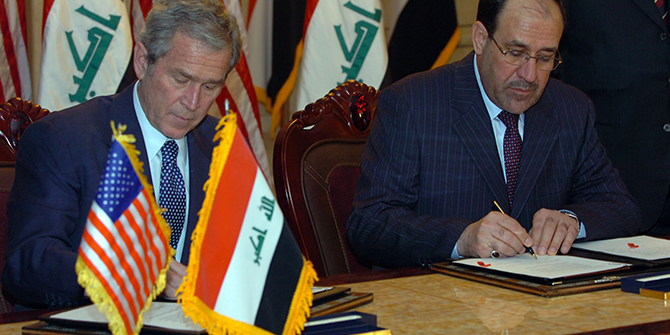
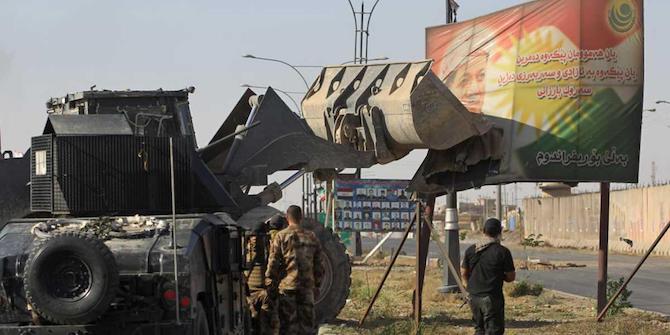
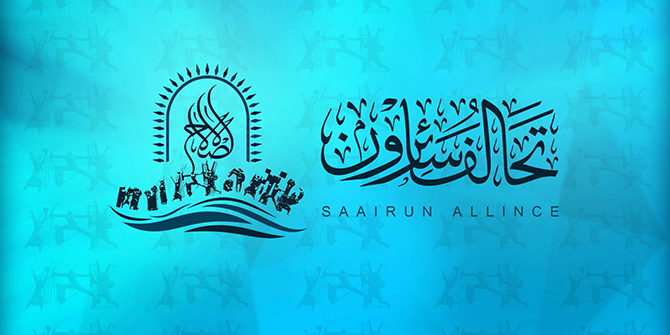
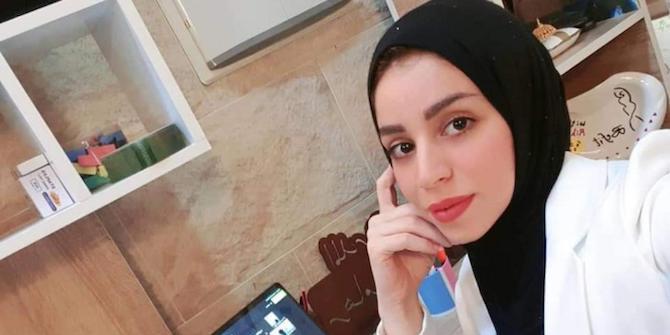
2 Comments